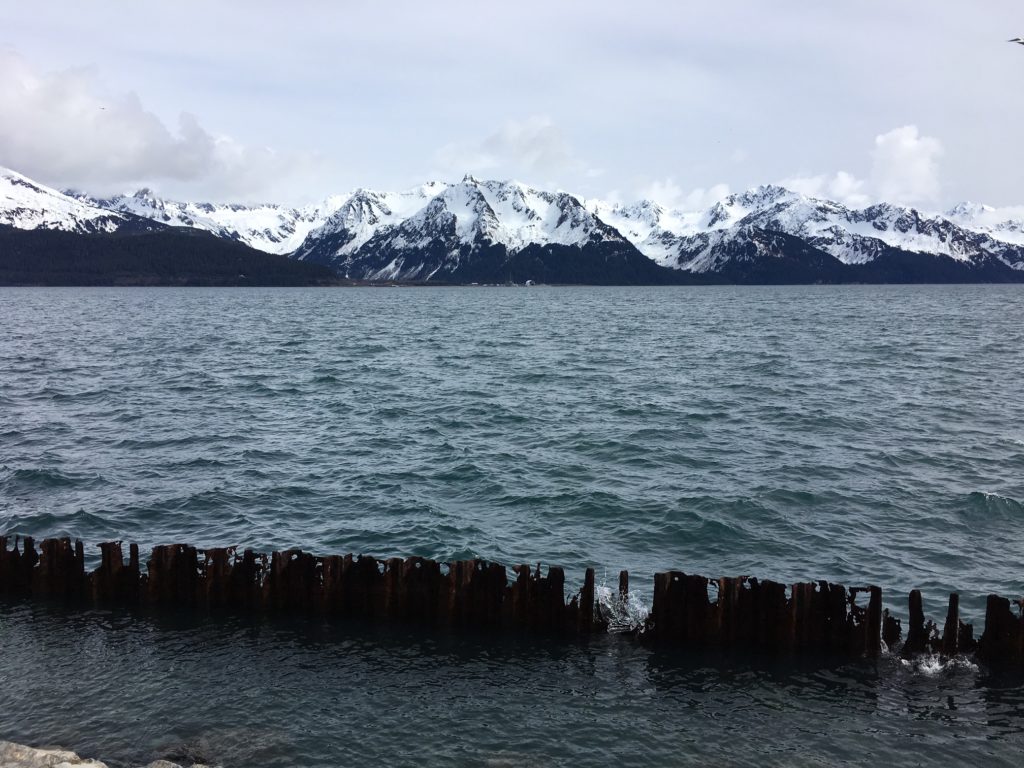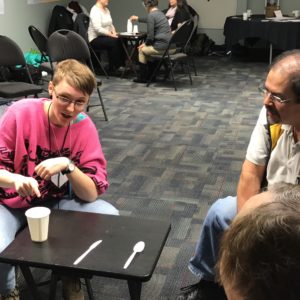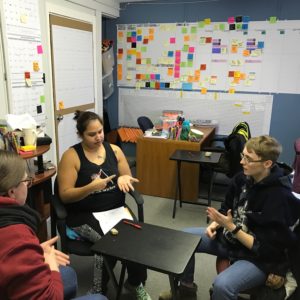
Note from Myles: This post is directed towards Alaskan readers of the WAYK blog.
In 2014, 20 Indigenous languages were made official languages of the State of Alaska. For many Indigenous speakers and learners, this was an important shift in Alaska’s history.
This act is just a small piece of a larger movement that is happening across our state, and indeed our world. While Indigenous Alaskans are fighting for their right to speak their languages, pass down their cultures, and maintain sovereignty to their land, many non-Indigenous Alaskans are not paying attention to these issues.
Non-Indigenous Alaskans need to pay attention and we need to care about the languages that were here first.
This act, I believe, is symbolic for many non-Indigenous Alaskans as well. It brings wider consciousness to issues of language trauma, linguistic sovereignty, and language revitalization with which many non-Indigenous Alaskans have not been previously confronted. There are, furthermore, many reasons for non-Indigenous Alaskans to care and be involved in the revitalization of Alaska Native languages.
First, we need to care about Indigenous languages because we are settlers on Indigenous land.
There is a certain cognitive dissonance that many non-Indigenous Alaskans have about Indigenous languages versus foreign languages. An American living in Germany, France or Italy is expected to learn German, French or Italian, or at least learn a few phrases to get by or at the very least learn something about these languages. It is a way to show respect to the individuals whose country you are in. Why is it that on Indigenous land, we aren’t held to that same level of respect? We are living on Indigenous land and very few of us know anything about Alaska Native languages.
Furthermore, we need to understand that Indigenous Alaskans’ languages are not just a means of communication, but a connection to land, history, and worldview. As an English speaker, the English language does not root me to Alaska; I do not view my connection to Alaska through the English language. Indigenous languages of Alaska, on the other hand, were born of Alaska and rooted in connection with the lands and waters of this place. The very name we use to refer to our state comes from the Unangax̂ word Alax̂sxax̂, referring to the mainland. If we want to accurately represent and carry on the stories of Alaska, we need to understand that Indigenous languages are essential. Otherwise, we continue to see lands as disconnected to people, and we continue to view Indigenous land as something that is un-rooted and can continue to be stolen.
Furthermore, caring about Indigenous languages as non-Indigenous Alaskans means demonstrating respect to Indigenous Alaskans and their concerns. Respect means avoiding micro-aggressions like, “Those sounds are so strange”, “I could never pronounce something like that”, or “Why can’t you speak your language?” Learn the history of boarding schools, learn the history of colonization and learn how these issues live on in our present.
Moreover, caring about Indigenous languages means promoting diversity, and not simply as a box to check off. People will often think myopically about diversity in terms of numbers; I have seen the statistic about 100 languages being spoken in Anchorage schools countless times. But what about the “diversity” that is not reflected in that number? Anchorage has six strong immersion school programs, but not one is in an Indigenous language. As non-Indigenous people, we should be demanding Yup’ik, Inupiaq, and Dena’ina in our schools, if we already have Russian, German, and Chinese.
Caring about Indigenous languages does not mean that you must spend the next twenty years of your life learning how to speak one fluently as a non-Indigenous person. In some instances, that might not be the best way to be an ally. If your goal is only to learn the language, but not to be a support to Indigenous language learners doing the same, you are probably doing more damage than good.
What I do think is essential, though, is standing alongside Indigenous language activists when they are fighting for the equal rights of their languages. Support Indigenous language legislation. Ask if your school administration if they are providing adequate Indigenous language support. Give to immersion school programs. Support bilingual signage. Learn important phrases. Read more about the history and legacy of boarding schools. And listen to language advocates. Make sure to be a partner, not a parent. Support Indigenous languages, but follow Indigenous leadership.
As a non-Indigenous Alaskan working with Indigenous languages, I know I do not always get it right. At times I may have taken up too much space in a discussion about language revitalization or I may have not listened keenly enough to the goals of Indigenous language teachers in the classroom. I try to work hard on recognizing my settler privilege and listening to Indigenous language activists and supporting the work they do. Ignoring such work is a disservice to Indigenous land and a disservice to my Indigenous friends and colleagues.
I truly encourage every non-Indigenous person reading this to think about the ways in which they can better promote language equity in our state, and how we can promote the well-being and livelihoods of every person in the state of Alaska.
Post authored by Myles.




